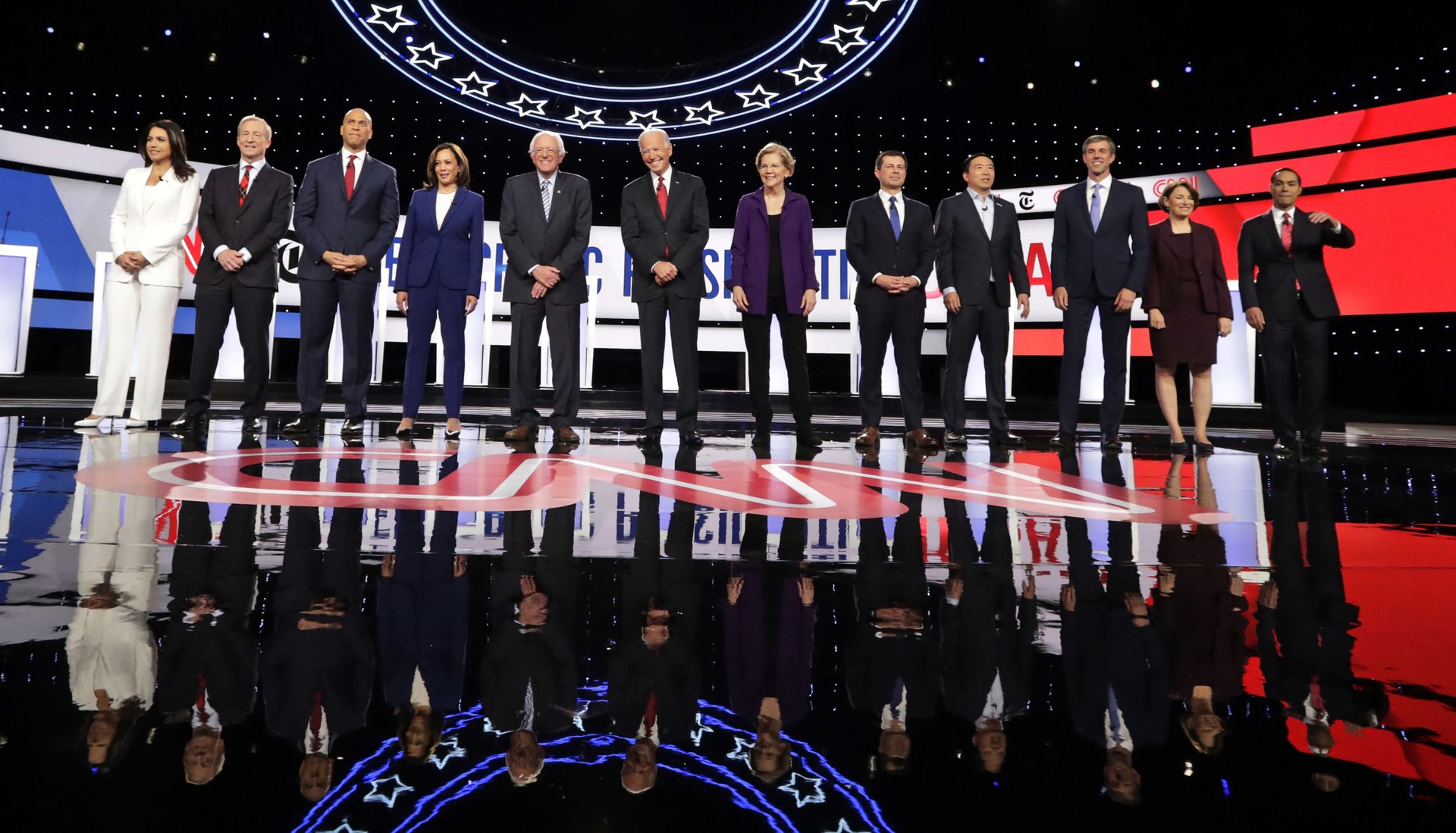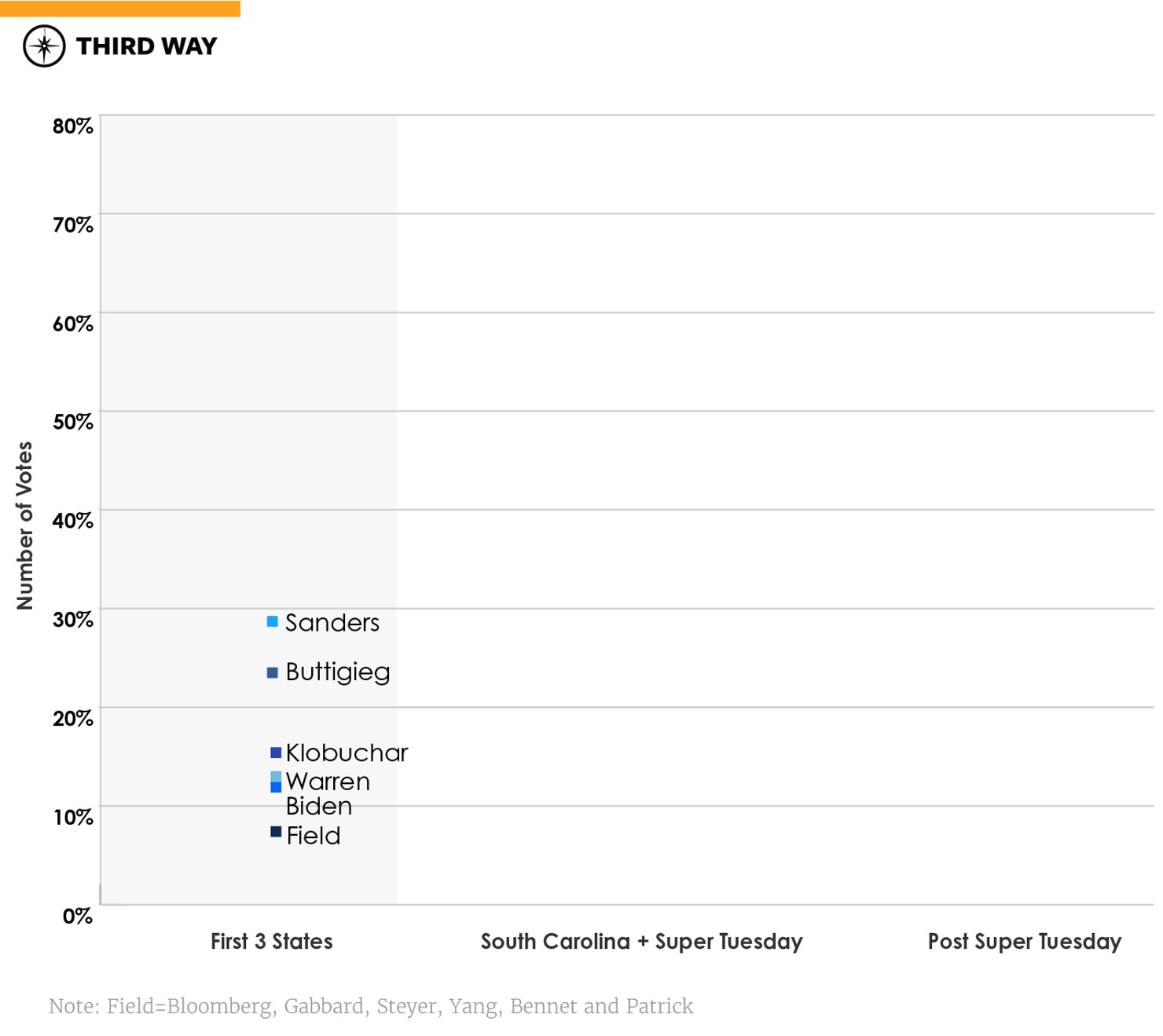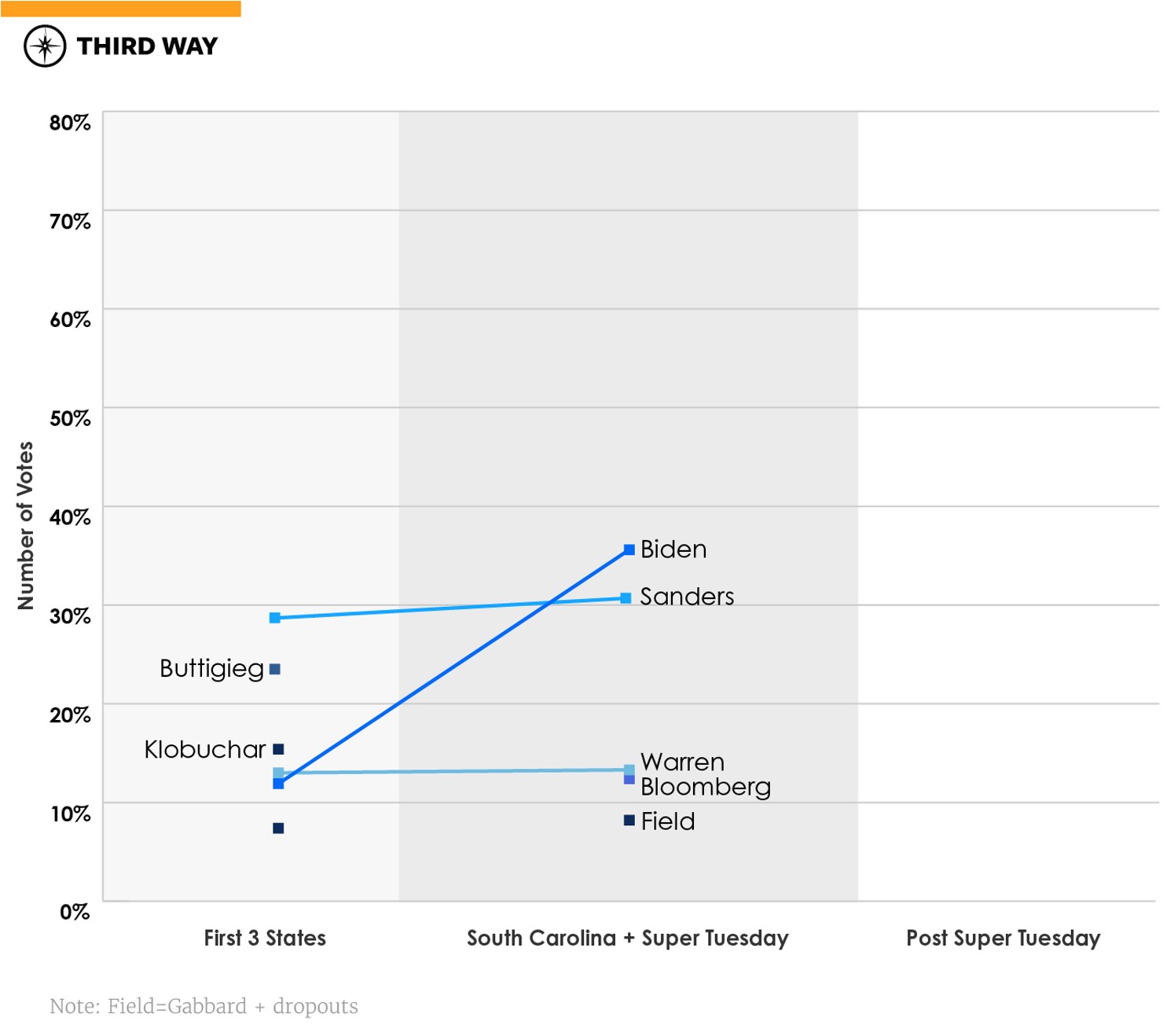Memo Published August 13, 2020 · 4 minute read
Biden Won the Primaries by Uniting the Party
David de la Fuente & Jim Kessler

This was the year of the largest presidential primary field in history. In summer 2019, you could point to 25 unique individuals running for the Democratic nomination, and debates had to be separated across two nights to accommodate the 20 qualified candidates. Such a large field and seemingly divided party was set to produce a grueling slog all the way to the DNC convention, and possibly create the first brokered convention since the dawn of the modern primary era.
But that was never to be. All but 11 candidates dropped out before Iowa—still a historically large field—and the field continued to narrow until Joe Biden was the last person standing after just over half the contests were finished.
But how did Biden do it? Simply put, he was able to unite the party, and do it quickly.
As the race progressed, Biden’s support grew while everyone else’s support remained stagnant.


Through the first three state contests, Bernie Sanders led all candidates with 28.7% of the popular vote. Joe Biden was in 5th place with just 11.9%. The field was split with Pete Buttigieg at 23.5%, Amy Klobuchar at 15.4%, and Elizabeth Warren at 13.0%. It was during this stage that Andrew Yang, Michael Bennet, and Deval Patrick dropped out, all after New Hampshire. During this phase, the field seemed hopelessly divided, but then South Carolina provided an answer.
In the South Carolina and Super Tuesday contests, Biden’s support tripled thanks to dropouts and consolidation.
Thanks to strong support from the core of the Democratic Party—black voters—Biden scored an overwhelming win in South Carolina that caused the field to winnow further over the coming days, and nearly all of the support from those candidates flowed to Biden. After South Carolina, three candidates dropped out including Tom Steyer the night of the primary. In the days between South Carolina and Super Tuesday, Pete Buttigieg and Amy Klobuchar both ended their bids and held Biden endorsement events in Texas along with native son Beto O’Rourke—another former rival. Meanwhile, neither Sanders nor Warren benefited from the winnowing as new entrant Michael Bloomberg could not find his footing on Super Tuesday.
With the field at two post-Super Tuesday, Biden continued to consolidate support from former rivals from all parts of the party.

As the field dropped to just two main contenders, Biden consolidated support from his former rivals in a way no one else matched all process. Shortly after winning big on Super Tuesday, Biden was endorsed by multiple former contenders including Mike Bloomberg, Cory Booker, Kamala Harris, Kirsten Gillibrand, Tulsi Gabbard, Andrew Yang, Deval Patrick, and John Delaney. The support from Bloomberg supporters may not have been a surprise, but consolidation by Biden of Warren fans was to many. By the time Sanders withdrew from the race, Biden was winning almost every state with blowout margins thanks to his strong support across the party.
Shortly after Bernie Sanders dropped, both he and Elizabeth Warren along with Julian Castro, Michael Bennet, Jay Inslee, John Hickenlooper, Eric Swalwell and Tom Steyer endorsed Biden as the presumptive nominee in shows of party unity. Along with the support of Tim Ryan and Seth Moulton that Biden received before the Iowa caucuses, that means 21 former candidates have now coalesced behind Biden as the party’s standard bearer.
Perhaps the pivotal moment in finalizing unity was how the Biden and Sanders campaigns handled the end of active campaigning and transitioned to a period of having a presumptive nominee. Sanders was gracious in defeat. He publicly and ferociously endorsed Biden as a candidate his supporters could trust to serve them as president. Biden has made good faith efforts to appeal to Sanders supporters by ensuring they have proper representation at the DNC convention, reversing rules that say spots Sanders earned must transfer to Biden. Biden is also highlighting areas of policy agreements that reinforce shared values with Sanders supporters.
What was supposed to be a divisive and wounding primary process ended up being one of only two Democratic primaries in the modern era where all major candidates except the nominee dropped out before the end of the process. (The other time being in 2000, when there were only two candidates from the beginning of the race.)
Now, Joe Biden stands alone as the last candidate with the party united. The divisions that seemingly plagued the party—ideological, generational, identities—have disappeared as Biden is building a party that highlights the talents and voices of his team of former rivals.

